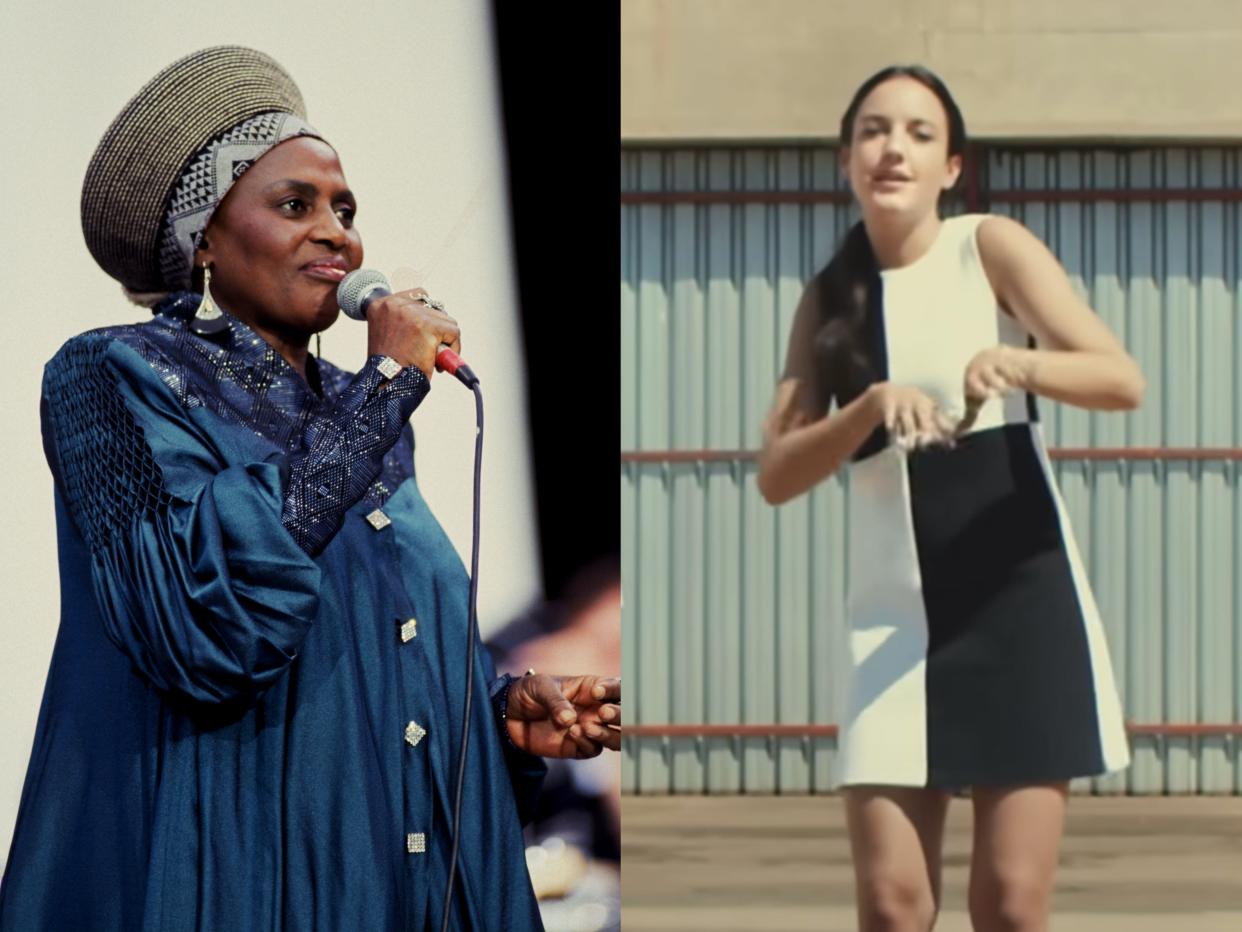How Miriam Makeba, a South African singer who fought apartheid, inspired a viral TikTok meme and dance

"Makeba" by Jain is surging in popularity thanks to a TikTok trend featuring Bill Hader.
The catchy song behind the meme honors Miriam Makeba, a South African artist and activist.
Makeba spent her career singing about the injustices in her home country.
Good luck scrolling TikTok without hearing the viral chants of "ooohe!" from "Makeba."
The 2015 song by the French artist Jain is making its rounds on the app thanks to a meme of Bill Hader dancing and has morphed into, you guessed it, a new dance trend.
The meme uses a cut-for-time "Saturday Night Live" sketch from 2015 that has also since gone viral in which Hader plays a human-esque doll named Alan who provides "casual entertainment," like dancing, to its owners.
TikTokers have paired Hader's dance moves with "Makeba."
There are currently 1 million TikTok videos that have used "Makeba" as a sound, according to the app. Videos featuring the short dance and viral song — which have amassed millions of views each — first started popping up in May with the trend officially taking hold in June and continuing into early July.
But "Makeba," the revived dance hit fueling the craze, honors a real person: famed South African activist Miriam Makeba.
Who was Miriam Makeba?
Makeba, also widely known as "Mama Africa," was a South African singer, songwriter, actress, and civil rights activist during the height of apartheid in her country.
She started her singing career in the 1950s and mainly performed jazz and Afropop with a group called the Manhattan Brothers and eventually an all-female group, the Skylarks. By the end of the decade, she had made an appearance in the anti-apartheid film "Come Back, Africa," which earned her national attention and led to her performing internationally.
Makeba then moved to New York City in 1959 to pursue her music career where she began working with Harry Belafonte.
In 1960, Makeba learned that her mother had died shortly after the Sharpville Massacre in South Africa and tried to return for the funeral, only to learn her South African passport had been revoked.
It was the start of 30 years of exile for the South African artist.
Makeba started to explore more explicitly political themes in her music, and became an outspoken activist against apartheid in her home country. During her successful career, Makeba took home a Grammy award.
With the end of apartheid, Makeba was finally able to return to South Africa in 1990 for a six-day stay. In 1992, she performed concerts in Johannesburg.
In 2008, Makeba had a heart attack while performing her hit song, "Pata Pata," and later died in the hospital when doctors were unable to revive her.
What does "Makeba" mean?

"Makeba" was a song on Jain's first album, Zanaka, released in 2015.
Its lyrics clearly reference the political activist for which it is named.
The notable chorus, "Oohe/Makeba Makeba/ma qué bella," references Makeba's beauty, featuring the Italian phrase meaning "how beautiful."
"Nobody can beat the Mama Africa/You follow the beat that she's going to give ya," Jain sings.
The line "Only her smile can all make it go/The sufferation of a thousand more," clearly calls out the apartheid in South Africa taking place while Makeba was rising to fame.
In a 2015 interview with Fader, Jain said she listened to a lot of African music when she was young, including Makeba's hits.
When asked about Makeba herself, Jain praised the star: "I really admire her, because she was a strong woman and she was an incredible performer… When I watch videos of her shows, she had this thing — this aura — around her, full of determination and joy. And she had this groove."
Read the original article on Insider


